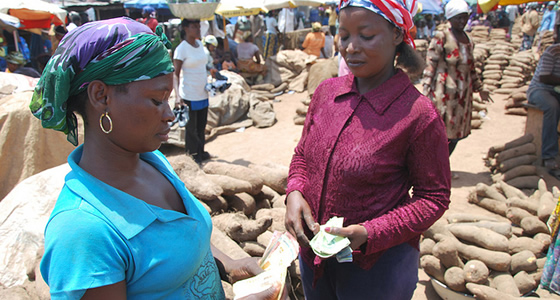 Africa’s inhibiting trade barriers account for the slow pace of development on the continent, the President of African Regional Organisation for Standardisation (ARSO), Mr Joseph Odumadu, has said.
Africa’s inhibiting trade barriers account for the slow pace of development on the continent, the President of African Regional Organisation for Standardisation (ARSO), Mr Joseph Odumadu, has said.
He has, therefore, called on African leaders to team up and work closely to eliminate the barriers which hinder the business community’s ability to trade within the continent.
Mr Odumadu made the call when he led a group to pay a courtesy call on the management of Kasapreko Company Limited (KCL) at Spintex in the Greater Accra Region.
The visit was to offer the management of the two corporations an opportunity to discuss ways of promoting trading activities among African countries.
It was also to enable members of ARSO to familiarise themselves with the activities and operations of KCL.
Transport African labour
Mr Odumadu said one of the key ways to raise the image of Africa in the international market was for businesses on the continent to promote efficient trade and do business with one another.
“Most of the problems the African continent is facing are as a result of the numerous trade restrictions existing among member countries. If these trade restrictions are removed, it will pave the way for a total transformation of the African economy,” he said.
Mr Odumadu observed that a constant reason why the African continent continued to be confronted with the same old economic problem was the unwillingness of the leadership within the continent to work together.
“We must deal with the African situation the African way and not to allow the influence of the foreign policies to hinder us from developing our continent,” he added.
KCL commended
Mr Odumadu lauded the leadership and management of KCL for the huge investment in ensuring that its products met international quality standards, saying “I am impressed about the level operations I have seen at KCL.”
Empower African businesses
The Founder and Chief Executive Officer of KCL, Mr Kwabena Adjei, underscored the need to empower African businesses to enable them to compete effectively in the global market.
He said over the years, KCL had put in place efficient measures to ensure that its products met the needs of its customers, and added “we continue to remain committed to this objective”.
According to Mr Adjei, African businesses could rise to the same height of foreign businesses if member countries would be willing to work towards the pulling down of trade obstructions in the continent.
He, however, assured the preparedness of KCL to join forces with other businesses to promote valuable trade activities within the continent by calling on others to also help fight the cause.























